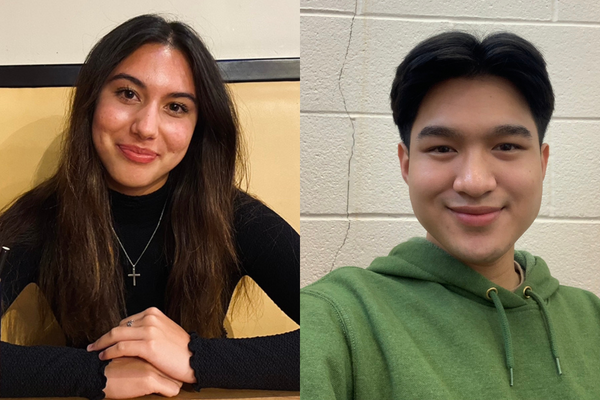We use cookies on this site to enhance your experience.
By selecting “Accept” and continuing to use this website, you consent to the use of cookies.
Search for academic programs, residence, tours and events and more.
Jan. 12, 2023
Print | PDFStudents in a first-year anthropology course at Wilfrid Laurier University have earned first-place finishes in the Community Action Project, a writing competition organized by the Center for a Public Anthropology at Hawaii Pacific University.
Twenty-three students in AN100: Cultures Today, taught by Laurier Instructor Kelly Linton during the fall 2022 term, received awards for their short stories on the competition’s topic of race and policing.
The annual Community Action Project competition provides students an opportunity to develop future-ready skills, including critical thinking, effective communication, and constructively engaging with challenging perspectives, by researching and writing about a polarizing topic.
“Highlighting statistics about race and policing – or trying to use logic – won't always change peoples’ minds. I really tried to tell a story about the human experience and demonstrate how and why preconceived opinions – about police officers and people of colour – are so damaging.”
Students also anonymously review submissions by four other competitors. The competition attracts more than 1,000 participants from postsecondary institutions across North America and Hawaii.
“Participating in the Community Action Project provides an excellent opportunity for students to engage in issues of public concern, enhance their skills and experience first-hand how anthropological perspectives can move beyond the classroom to make a real difference in the world,” says Linton. “The students’ outstanding success reflects their engagement and commitment to the project.”
Public anthropology examines large-scale social issues and encourages broad conversations with stakeholders outside the scope of traditional anthropology to foster positive change. The Community Action Project is a long-standing experiential learning opportunity for students in AN100, a course that provides Laurier students with an introduction to the study of world cultures and an opportunity to explore ethnographic case studies.
We can’t make assumptions about anyone because everyone has different experiences and viewpoints... Being open to other people’s experiences is the best way to create understanding.
Laurier student Tommy Frias won an award for his short story “Polarization Paradox.” The story highlights an escalated interaction between a white police officer and a young Black man sitting in a parked car. Both characters held assumptions about each other based on their upbringings, experiences and belief systems.
“Highlighting statistics about race and policing – or trying to use logic – won't always change peoples’ minds,” says Frias. “I really tried to tell a story about the human experience and demonstrate how and why preconceived opinions – about police officers and people of colour – are so damaging.”
Frias consulted media articles published in major American cities to gather information about the topic.
“My research skills have improved through this process,” says Frias. “It was interesting to see how instances of race and policing are portrayed in the media. You need to know which sources are credible and of quality.”

Photo: Laurier students Madison Cook and Tommy Frias.
Laurier student Madison Cook won an award for her short story “A New Mindset.” Cook’s story highlights an interaction between a retired white police officer and a young Black man in a convenience store in rural Arkansas. After speaking with the young man – who was visiting Arkansas from New York City – the former officer sees racism differently.
“This project was a great opportunity to tackle a really challenging topic,” says Cook. “We can’t make assumptions about anyone because everyone has different experiences and viewpoints. It doesn’t mean they are right or wrong. We all come at things from different places. Being open to other people’s experiences is the best way to create understanding.”
All 23 award-winning stories written by Laurier students can be read online.